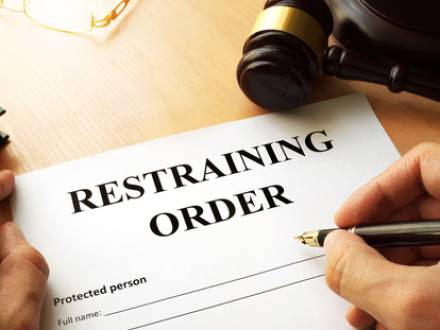Recent Blog Posts
How Can an Unmarried Father Get Custody?
 Roughly 40 percent of children are born to unmarried parents. Parents today feel less pressure to get legally married just because they are having a child together. When a child is born to an unmarried mother, the mother is presumed to have sole legal custody unless the father takes legal steps to get placement and decision-making rights. This is often a non-issue when the parents are in a committed relationship, but it can become a big problem when the parents split. Fathers already have a statistical advantage in child custody cases. Although mothers and fathers are to be treated equally under the law, courts tend to favor mothers in child placement disputes, especially when the child is very young. If you are an unmarried father seeking custody of your child, you need an experienced Madison, WI child custody lawyer to fight aggressively for you.
Roughly 40 percent of children are born to unmarried parents. Parents today feel less pressure to get legally married just because they are having a child together. When a child is born to an unmarried mother, the mother is presumed to have sole legal custody unless the father takes legal steps to get placement and decision-making rights. This is often a non-issue when the parents are in a committed relationship, but it can become a big problem when the parents split. Fathers already have a statistical advantage in child custody cases. Although mothers and fathers are to be treated equally under the law, courts tend to favor mothers in child placement disputes, especially when the child is very young. If you are an unmarried father seeking custody of your child, you need an experienced Madison, WI child custody lawyer to fight aggressively for you.
Why is My Child Lying During Custody Proceedings?
 Every parent has experienced their child lying. Children lie for a lot of different reasons. Young children might tell fantastical stories as if they are true simply as a means of expressing their imagination. Older children might lie to get out of doing something they do not want to do, often by pretending to be sick to avoid going to school. Teenagers often lie to avoid getting in trouble, like when they claim to be at a friend’s house while they are actually at a party where alcohol is present. When children lie during child custody proceedings, you and your Madison, WI family law attorney will want to find out why they are not telling the truth and what the truth is. Children’s words can influence the results of a custody hearing.
Every parent has experienced their child lying. Children lie for a lot of different reasons. Young children might tell fantastical stories as if they are true simply as a means of expressing their imagination. Older children might lie to get out of doing something they do not want to do, often by pretending to be sick to avoid going to school. Teenagers often lie to avoid getting in trouble, like when they claim to be at a friend’s house while they are actually at a party where alcohol is present. When children lie during child custody proceedings, you and your Madison, WI family law attorney will want to find out why they are not telling the truth and what the truth is. Children’s words can influence the results of a custody hearing.
What is Coaching?
Coaching is when an adult tells a child what to say in order to influence the results of a child custody dispute. A parent who is trying to make his or her co-parent look bad might train a child to claim that the co-parent uses drugs, hits the child, or has been violent toward other family members. It is usually obvious to the court when coaching has taken place, but it is still important to tell your attorney if you suspect that someone is teaching your child to say things that are not true.
3 Things to Expect in a Highly Contested Child Custody Case
 Some divorces are amicable and involve effective communication between the parties. If the spouses agree on all aspects of the divorce, it is considered uncontested.
Some divorces are amicable and involve effective communication between the parties. If the spouses agree on all aspects of the divorce, it is considered uncontested.
Many divorces, however, are contested. This means that the spouses disagree on at least one of the issues related to the divorce, such as:
-
Child custody
-
Child support
-
Property Division
-
Spousal support (alimony)
Usually, a court will order the parties in a contested divorce to try working out their issues in mediation. But sometimes — especially when emotions are running particularly high — the spouses may so vehemently disagree that mediation is not even an option. This is referred to as a highly contested or high-conflict divorce, and it usually proceeds to trial.
Child custody is often an emotionally charged issue for divorcing parents and in many cases leads to a court battle, also referred to as litigation. If your divorce proceeds to trial, it is crucial to be represented by a Wisconsin divorce litigation attorney who will represent you in court. Your attorney will walk you through the trial process and explain what to expect. This article will discuss three things to expect in a highly contested child custody case.
What Rights Do Unmarried Fathers Have in Child Custody Disputes?
 Child custody disputes are often complex and tense procedures. If the parents are unmarried, they can also be confusing. Unmarried fathers sometimes have certain assumptions about what rights they do or do not have, which can make any child custody case more challenging and emotionally charged.
Child custody disputes are often complex and tense procedures. If the parents are unmarried, they can also be confusing. Unmarried fathers sometimes have certain assumptions about what rights they do or do not have, which can make any child custody case more challenging and emotionally charged.
That is why a Wisconsin child custody attorney is key to navigating such disputes successfully. An experienced lawyer can protect the parental rights of an unmarried father and aggressively pursue the best judgment for both the father and the child.
In this article, we will explore father’s rights under Wisconsin law and how to establish paternity to claim those rights.
What Rights Do Unmarried Fathers Have in Wisconsin?
Wisconsin law recognizes the importance of both a mother and a father in their child’s life. Therefore, fathers, by default, have the same rights and responsibilities to their children that mothers do. However, if the parents are unmarried, the mother automatically has sole legal custody of the child. Legal custody in Wisconsin refers to making decisions for the child, while physical placement refers to spending time with him or her.
What Strategies Can I Use in a High-Conflict Divorce?
 Divorce can be a draining and tense ordeal. Spouses often have strong disagreements about how to divide assets, how to share custody, and how to pay alimony. It is known to be an emotional process, especially when children and other family members are involved.
Divorce can be a draining and tense ordeal. Spouses often have strong disagreements about how to divide assets, how to share custody, and how to pay alimony. It is known to be an emotional process, especially when children and other family members are involved.
Sometimes, there are divorces where the discord and emotional tension are amplified. These are referred to as high-conflict divorces. In these cases, the emotions that surface are mostly negative, and hostility guides the divorce process. Level-headedness and reason become overwhelmed by malice and spite, leading to poor decision-making by both parties.
This article will discuss the signs of a high-conflict divorce and some strategies to navigate one successfully. If you think you may become embroiled in a high-conflict divorce, contact a Wisconsin high-conflict divorce attorney to protect you and your interests.
What Are the Signs of a High-Conflict Divorce?
In a high-conflict divorce, one or both of the parties exhibit an unwillingness to engage in the process in good faith. Instead, behavior becomes spiteful, and there is more focus on harming the other party than on settling the issues amicably. The following are some signs of a high-conflict divorce:
How Can I Get a Restraining Order Against an Abusive Ex?
 Domestic violence is increasing at a worrying pace. There were six domestic violence deaths in Milwaukee in April alone. Even as homicides and shootings decline, intimate partner violence is on the rise. In 2022, Wisconsin suffered a record 96 deaths related to domestic abuse, a 20 percent surge from the year before.
Domestic violence is increasing at a worrying pace. There were six domestic violence deaths in Milwaukee in April alone. Even as homicides and shootings decline, intimate partner violence is on the rise. In 2022, Wisconsin suffered a record 96 deaths related to domestic abuse, a 20 percent surge from the year before.
The problem persists around the country, with states like Massachusetts, Utah, and New York City also experiencing an uptick in domestic violence cases. Figures from the National Domestic Violence Hotline reveal that an average of 24 people experience domestic violence every minute. According to some estimates, domestic abuse has risen over eight percent in the United States since the COVID-19 lockdown orders.
Victims of domestic violence or those who are threatened with domestic violence may be able to secure a restraining order from the court against their abusers. This article will explore restraining orders and how to obtain one with the help of a Wisconsin family law attorney.
Are Custody Cases Different for Special Needs Children?
 Child custody cases can be heart-wrenching and legally complex. When the child involved has special needs, the challenges can become even more distinct. In such cases, courts must take into account factors such as additional medical care and special education. These can affect court decisions on issues like child support and physical placement, also known as physical custody.
Child custody cases can be heart-wrenching and legally complex. When the child involved has special needs, the challenges can become even more distinct. In such cases, courts must take into account factors such as additional medical care and special education. These can affect court decisions on issues like child support and physical placement, also known as physical custody.
Custody orders issued by a court are legally binding and difficult to modify. If your child has special needs, therefore, make sure to involve a Wisconsin child custody attorney to protect your child’s interests. This article will discuss how child custody cases are different for special needs children.
Child Care Expenses
Child support refers to financial contributions parents must make to provide their children with a standard level of care and support. When a child requires care beyond this, a court may order the parents to pay for extra care a child might need, such as:
Should My Child Have a Guardian Ad Litem in My Divorce?
 Divorces often become more complicated when a child is involved. Not only can it affect financial decisions, but parents will also be tasked with reaching settlements on child custody and child support. If they do not, a court will issue orders on those matters as well based on what is in the child’s best interests.
Divorces often become more complicated when a child is involved. Not only can it affect financial decisions, but parents will also be tasked with reaching settlements on child custody and child support. If they do not, a court will issue orders on those matters as well based on what is in the child’s best interests.
Sometimes, however, the child’s best interests are not apparent. In that case, a court will likely appoint an attorney to advocate for the child throughout the divorce process. This attorney is called a guardian ad litem, which is Latin for "guardian for the lawsuit." He or she is a neutral party whose job it is to determine what is best for the child’s welfare.
This article will discuss what a guardian ad litem does and when one is appointed. Consult a Wisconsin child custody attorney if you think your child may benefit from a guardian ad litem.
I Think My Ex Is Abusing Our Child. What Should I Do?
 Divorce increases the risk of child abuse. One of the reasons for this is that when the parents separate, they are subject to less supervision. Parents often have more opportunities to abuse their children after divorce. A parent might feel emboldened to engage in abusive behavior if he or she knows the other parent is not there to protect the child.
Divorce increases the risk of child abuse. One of the reasons for this is that when the parents separate, they are subject to less supervision. Parents often have more opportunities to abuse their children after divorce. A parent might feel emboldened to engage in abusive behavior if he or she knows the other parent is not there to protect the child.
Child abuse is more than a crime. It affects a child’s future in negative ways that are not always apparent at the time of the abuse. If you think your ex-spouse might be abusing your child, call your Wisconsin child abuse lawyer immediately to take action.
There are several kinds of abuse, both physical and non-physical, and it is important to recognize their signs.
What Are the Signs a Child Is Being Abused?
Always be on the lookout for signs that your child might be suffering from abuse. Keep in mind, however, that these signs do not conclusively mean your child is being abused. If your child exhibits some of these behaviors, you should investigate the matter to the best of your ability:
Is Your Spouse Hiding Assets During Your Wisconsin Divorce?
 As if divorce were not emotionally stressful enough, if you suspect your spouse is hiding assets, the stress is significantly increased. Along with eight other states, Wisconsin is a community property state. Under community property law, all income, property, and debts acquired during the marriage are divided equally during a divorce.
As if divorce were not emotionally stressful enough, if you suspect your spouse is hiding assets, the stress is significantly increased. Along with eight other states, Wisconsin is a community property state. Under community property law, all income, property, and debts acquired during the marriage are divided equally during a divorce.
Equitable distribution states, on the other hand, divide marital property and debts fairly, but not necessarily equally. Wisconsin requires full disclosure of all assets, yet some spouses are determined to take more than their fair share. If you suspect your spouse is not disclosing all marital assets, an experienced divorce attorney can work to locate the assets and then aggressively fight for your half.








